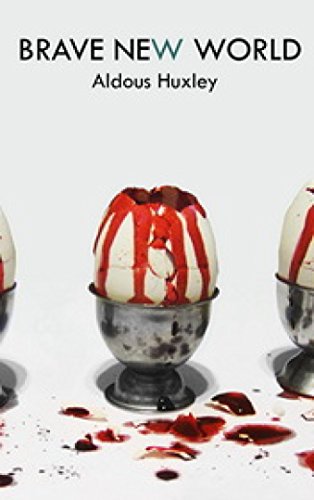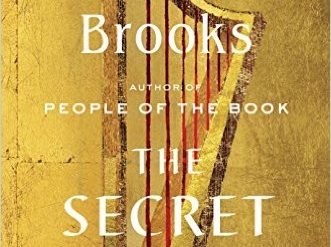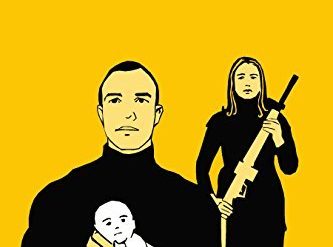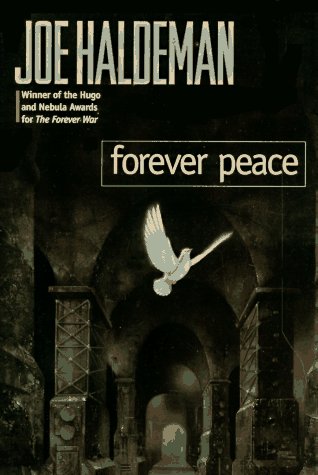
Aldous Huxley’s Brave New World is widely regarded as one of the 20th century’s seminal works of dystopian literature. Critics today tend to group it with George Orwell’s 1984, Margaret Atwood’s The Handmaid’s Tale, Philip K. Dick’s Do Androids Dream of Electric Sheep?, and other highly respected novels that depict a grim future for the human race. However, the books by Orwell, Atwood, and Dick appear to have been intended as social commentary, whereas Huxley’s is essentially a philosophical reflection on the human condition. As a novel, it’s far less satisfying.
Brave New World was published in 1932, and it shows. The society Huxley describes is grounded in the conflicts and technological debates of the 1920s: the rise of fascism and the prospects for sleep learning (hypnopaedia) and in vitro fertilization, in particular.
More telling still, the names of many of the characters in the novel are derived from Huxley’s contemporaries and historical figures whose influence was still active at the time. These include the society’s deity, “Our Ford” (Henry Ford); Lenina Crowne (Vladimir Lenin); Benito Hoover (Benito Mussolini and Herbert Hoover); Morgana Rothschild (J. P. Morgan and Lionel Rothschild); George Edzel (Henry Ford’s son, Edsel); Bernard Marx (Karl Marx); and Sarojini Engels (Sarojini Naidu, President of the Indian National Congress, and Friedrich Engels); and others. Clearly, Huxley was having fun.
Brave New World by Aldous Huxley ★★★☆☆
The novel is set in the 26th century (AF 632 or “After Ford”). Society is governed by the motto COMMUNITY, IDENTITY, STABILITY, an ideal enforced by the universal use of a tranquilizing drug called soma and the encouragement of unrestrained promiscuous sex. Pregnancy and motherhood are crimes; babies are raised in “bottles” thousands at a time in massive creches. The story revolves around the relationship between psychologist Bernard Marx and a young woman named Lenina Crowne. Both work at the Central London Hatchery and Conditioning Center. There, babies are born, “hatched” or “decanted,” and conditioned through sleep learning from childhood through adolescence in enormous numbers.
Bernard is an Alpha Plus, a member of the society’s intellectual elite; Lenina is a Beta Minus, a subordinate employee at the Hatchery, but far more favored than the Gammas, Deltas, and Epsilons, who have been conditioned to possess lower intelligence and to perform the less skilled and less desirable jobs. But Bernard is mocked by his fellow Alphas for his short stature, which causes him to overcompensate through arrogance and misplaced assertiveness, while Lenina is a strikingly beautiful young woman who is constantly sought after as a sexual partner.
The story continues on a Navajo Reservation
The contrast leads Bernard to shrink in fear at the prospect of asking Lenina for a date. When he finally does so, the date leads them to a Navajo Reservation, where Native Americans live in abject poverty within high walls that insulate them from contemporary society. There, the two encounter a young Englishman who had been raised as a “savage” after his mother was trapped many years earlier, pregnant, behind the walls. The story reaches a climax not long after Bernard and Lenina return to London with “Mr. Savage” in tow. If this is all satire, the references are lost on me.
Brave New World abounds with quotations from Shakespeare. The title itself is from The Tempest: “O brave new world That has such people in’t!” says Miranda to Prospero. The device Huxley uses to introduce most of the other quotes from the bard is The Complete Works of Shakespeare, which is the book “Mr. Savage” used to learn to read English on the reservation. Of the many elements in the novel that I find difficult to understand, this is one of the most extreme: most of Shakespeare is impenetrable to me, because the language is so archaic. However, it makes for colorful conversations in this novel once the young transplanted Englishman becomes involved in lengthy discussions with the Director of the Central London Hatchery.
Similarly, Huxley’s characters engage in philosophical discussions that no doubt reflect debates then underway in English intellectual circles. Maybe he just felt the need to show off. In any case, he wasn’t simply out to tell a story.
For related reading
For more good reading, check out:
- These novels won both Hugo and Nebula Awards
- The ultimate guide to the all-time best science fiction novels
- 10 top science fiction novels
- The top 10 dystopian novels
- Ten new science fiction authors worth reading now
And you can always find my most popular reviews, and the most recent ones, on the Home Page.




























I seriously object to the title “with a would be dictator in the White House” as the majority of the country believe that the greatest danger to that lately was Obama who was at least moved out of the White House for the time being–although he won’t leave DC. Obama was the one with a pen and phone who disregarded the legislative branch entirely. And having recently reread 1984 I can say that it is the Democrats who are now having “hate” rallies, who were monitoring individuals without authority, whose crimespeak was political correctness, and who were passing legislation in lock step making the party appear to have lost any vitality or ability to disagree in Congress. While I might enjoy reading this book, the political bias in the headline is a big turn off.
I call them the way I see them. If you’re offended, tough luck.